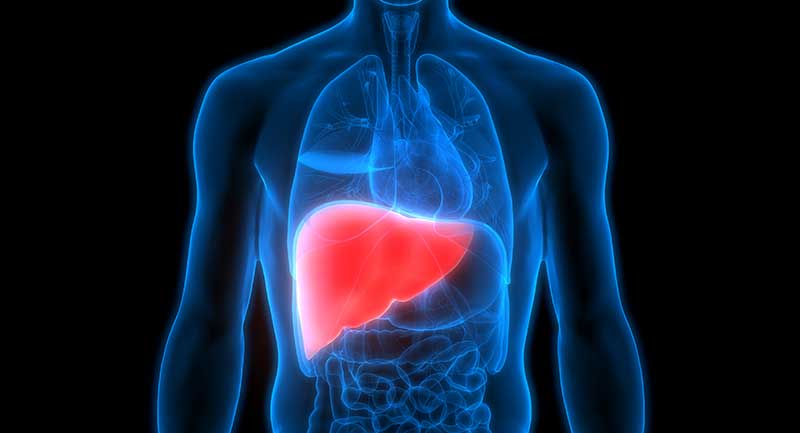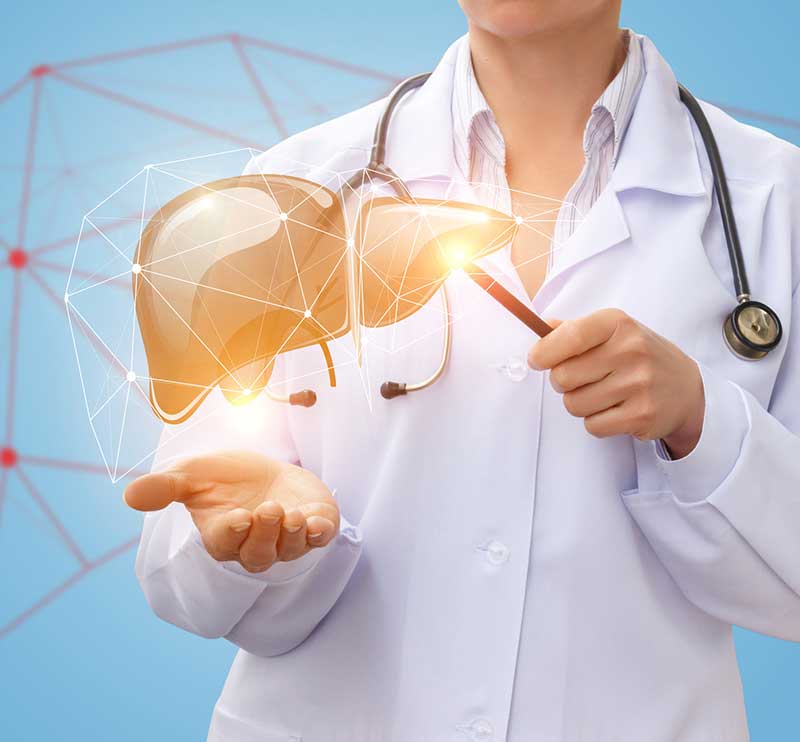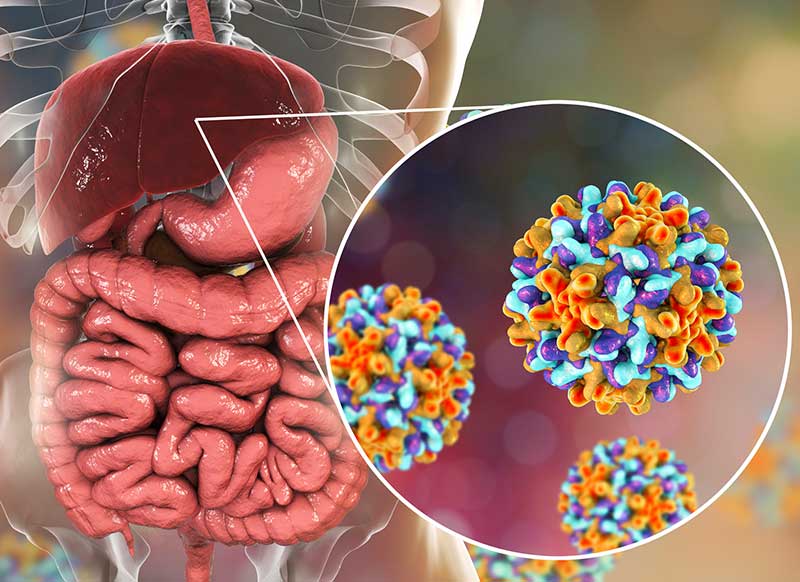
The largest solid organ in the human body, the liver removes toxins, helps with the digestion process, and stores energy.
This organ may not be able to do what it’s supposed to do if you have liver disease. There are many different types of liver-related diseases, including hepatitis.
If it’s suspected you might have liver disease, you may be referred to a GI doctor for further evaluation and treatment.
Causes of Liver Disease/Hepatitis
Parasites and viruses that infect the liver can contribute to the development of hepatitis A, B, or C. Such infections may be passed along from an infected person or via contaminated sources like water or blood. Abnormal immune system functions can also affect the liver and contribute to autoimmune hepatitis (AH) and other autoimmune liver diseases.
Other than immune system issues, non-infectious hepatitis may develop due to excessive alcohol consumption (alcoholic hepatitis). If alcohol is the main factor, cirrhosis may contribute to additional liver damage. Liver disease may also be related to:
- Fat accumulation in the liver (non-alcoholic fatty liver disease)
- Wilson’s disease and other genetic conditions
- Uncontrolled diabetes and other underlying conditions


Symptoms or Signs
If your liver is affected by disease, you may notice abdominal pain and swelling, or your skin and eyes might develop a yellowish appearance (jaundice). Pale, dark, or bloody stool, itchy skin, nausea or vomiting, chronic fatigue, and swollen legs and ankles are some of the common signs and symptoms generally associated with liver disease. With chronic hepatitis, you may not experience symptoms until the liver becomes damaged. If you have acute hepatitis, symptoms may include:
- Flu-like symptoms
- An unexplained loss of appetite
- Dark urine
- Weight loss without an obvious cause
Liver Disease/Hepatitis Diagnosis
A GI doctor may review results from a special group of blood tests called liver function tests in order to identify specific liver issues or rule out other possible problems. It’s not unusual for images tests and tissue samples to be part of the diagnostic process as well with liver disease and hepatitis.
Treatment and Symptom Management
Some types of liver disease respond well to lifestyle adjustments, such as losing weight and getting treatment for alcohol-related issues. Hepatitis A and acute hepatitis B usually don’t require significant treatment efforts, but antiviral medications may help with chronic hepatitis B and C.
A medication called alpha interferon is sometimes recommended for hepatitis D. Because hepatitis E is usually acute, the resulting infection typically goes away on its own. Patients with autoimmune hepatitis may benefit from corticosteroids and immune suppressing drugs. With some types of liver disease, surgery may be necessary.
Liver disease could result in the need for a liver transplant, although this is usually a last resort if other treatments aren’t effective. Certain types of hepatitis are sometimes preventable if you avoid raw or under-cooked shellfish and oysters and the consumption of local tap water that’s known to be unsafe. It’s also best to avoid touching spilled blood and sharing needles. Even a simple act like not using another person’s toothbrush could prevent the blood contamination that sometimes causes hepatitis.


